Reading: Luke 11,1-4
[1] He was praying in a certain place, and when he had finished, one of his disciples said to him, “Lord, teach us to pray just as John taught his disciples.” [2]He said to them, “When you pray, say: Father, hallowed be your name, your kingdom come. [3] Give us each day our daily bread [4] and forgive us our sins for we ourselves forgive everyone in debt to us, and do not subject us to the final test.”
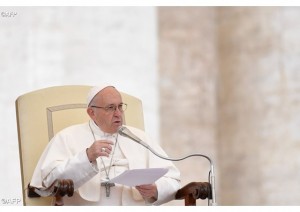
The Mass, the Pope said, is prayer – or rather, it is “the prayer par excellence, the highest, the most sublime, and at the same time, the most ‘concrete’ … it is an encounter with the Lord.”
“But what is prayer, really?” Pope Francis asked. “it is first of all dialogue, a relationship with God.” Man, he continued, “was created as a being in personal relationship with God, who finds his full realization only in the encounter with His Creator.”
God – Father, Son, and Holy Spirit – is Himself “a perfect relationship of love that is unity.” Because we are created in “the image and likeness of God,” we too are called to enter into a perfect relationship of love. And it is the Mass, the Eucharist, that is “the privileged moment to be with Christ, and, through Him, with God and with our brothers.”
But dialogue also means knowing how to remain silent, in the presence of the other. The Holy Father emphasized the importance of moments of silence when we go to Mass – the liturgy, he said, is not a time for chatting, but a time to recollect ourselves, to prepare our hearts for the encounter with Jesus.
Jesus Himself often went off to “a place apart” in order to pray; and His disciples, seeing His intimate relationship with the Father, asked Him how to pray. “Jesus says that the first thing necessary for prayer” is to be able to call God “Father.” Pope Francis said, “If I cannot say ‘Father’ to God, I can’t pray. We have to learn to say ‘Father,’ that is, to put ourselves into His presence with filial confidence.”
In this sense, he continued, we must be like children, able to entrust ourselves entirely to God, as children do with their parents. And, like children, we must also have a sense of wonder, we must “allow ourselves to be surprised.” When we speak to God in prayer, the Pope said, it is not talking to God “like parrots.” Instead it means “entrusting ourselves and opening our hearts to allow ourselves to wonder.” The encounter with God in Mass, he said, “is always a living encounter, it is not a meeting in a museum.”
Pope Francis recalled the Gospel account of Nicodemus’ meeting with Jesus. In their encounter, Jesus spoke about the need to be born again. But how is this possible, the Pope asked? “This is a fundamental question of our faith,” he said, “and this is the desire of every true believer: the desire to be reborn, the joy of beginning anew.” Pope Francis asked his audience, “Do we have this desire? Does each one of us have the desire to always be reborn in order to encounter the Lord? Do you have this desire?”
In fact, the Pope concluded, “the Lord surprises us by showing us that He loves us even in our weakness.” In the Mass, in our encounter with Jesus, “the Lord encounters our fragility in order to bring us back to our first calling: that of being in the image and likeness of God.” This, Pope Francis said, “is the environment of the Eucharist, this is the prayer.”
His catechesis, which is part of a new series of reflections focusing on the Sacraments, was delivered before the crowds gathered in St. Peter’s Square for the weekly General Audience.
Please find below the English Summary of Pope Francis’ catechesis:
Dear Brothers and Sisters: In this new series of catecheses on the Eucharist, we begin by reflecting on the fact that the Mass is first and foremost a prayer, indeed the prayer par excellence. For at every Mass we encounter God in his word and in the body and blood of Christ. Made in God’s image and likeness, we were made to know him, to love and to serve him. In prayer, we experience God’s closeness and love; we speak to him, but we also learn to listen to his voice speaking in our hearts. Jesus himself teaches us, as he did his disciples, how to pray. From him we learn to call God our Father, to trust in his love, and to be constantly surprised by the signs of that love. When Jesus speaks of our need to be “reborn” (cf. Jn 3:15), he is in fact inviting us to accept his gift of new life in the Spirit. By his sacrifice on the cross, he has atoned for all our sins and enabled us to make a new beginning, to lead a truly spiritual life. In our encounter with him in prayer, and above all in the Eucharist, we experience the consolation of his presence, the grace of his forgiveness and the joy of his invitation to live fully our vocation as God’s beloved children.
Vatican Radio

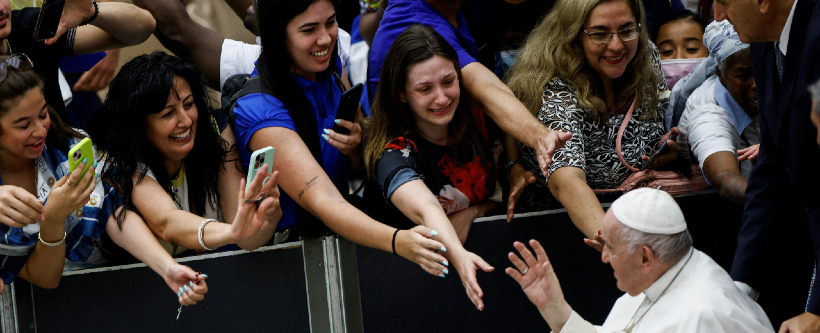
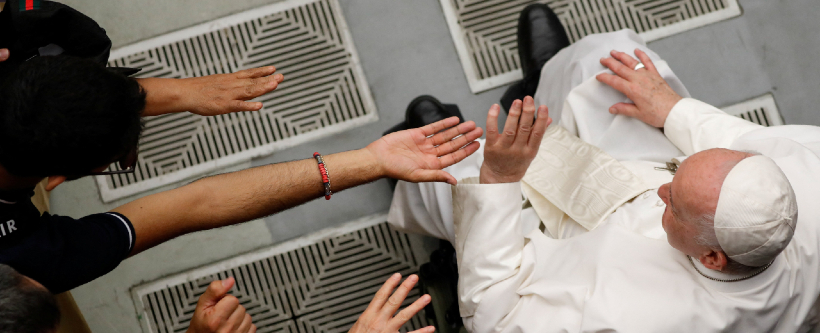
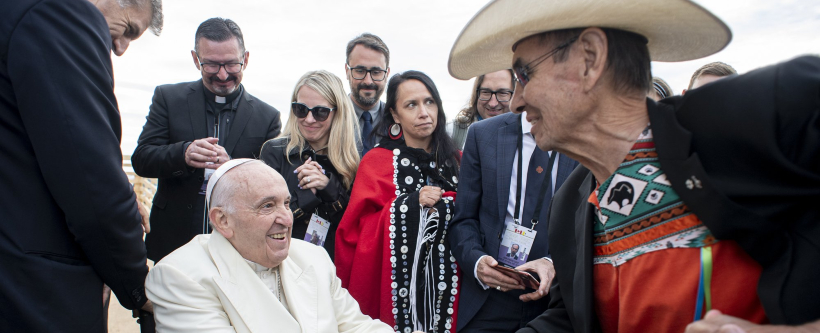
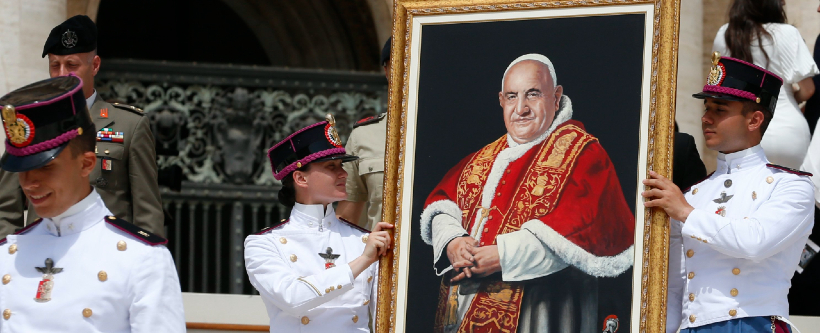
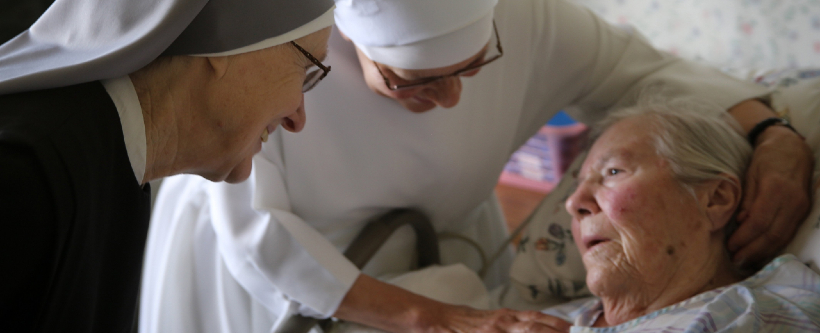
Facebook Comments